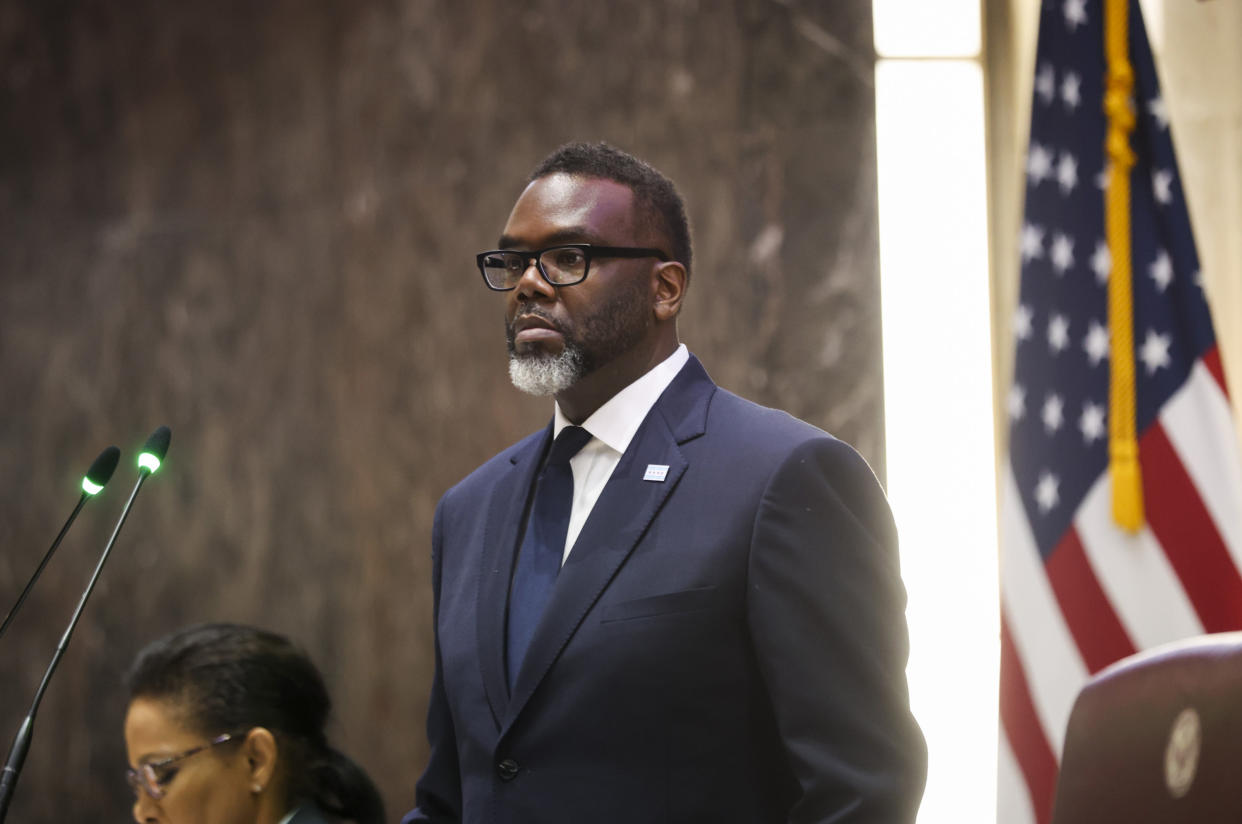Chicago mayor to shift $80 millon in ARPA spending, restart guaranteed income program

CHICAGO — Mayor Brandon Johnson’s administration will change how roughly $80 million in federal pandemic dollars get spent in the coming months to ensure the city doesn’t lose any money for not spending it by the 2026 deadline, officials said Monday.
Some programs will also see their American Rescue Plan Act funding scaled back or canceled so other initiatives better aligned with Johnson’s vision can instead get the money, administration officials told reporters in a briefing. That includes starting back up the guaranteed income program launched during Mayor Lori Lightfoot’s tenure, but nixing her administration’s plans for a sobering center and support for low-barrier homeless shelters run by outside agencies.
Following the failure of the Johnson-backed Bring Chicago Home ballot referendum that would have raised money for homeless services, the proposal also calls for a slight funding boost for a rapid rehousing plan to help those experiencing homelessness.
Chicago received $1.9 billion in ARPA funds during the coronavirus pandemic. Under federal rules, city and state ARPA beneficiaries must obligate all of their funds by the end of 2024 and spend them by the end of 2026. Johnson administration officials said formal announcements about what the shifts will pay for will happen in the coming days.
So far, the city has laid out how it plans to spend 88% of its ARPA dollars and spent 79%, Budget Director Annette Guzman told reporters.
A significant portion of the roughly $234 million in unobligated funds are supposed to be dedicated to community initiatives.
Guzman said since Johnson took office, staff took a fresh look at planned spending and decided to also shift roughly $80 million in obligated, unspent funding away from programs where there was a “high risk” dollars would not make it out the door by the deadline. Several of the 21 high-risk programs will have their funding reduced, as will a small number of medium-risk programs.
Only two programs will be scrapped: a planned $5 million sobering center — a place for intoxicated people to sober up in as an alternative to an emergency room or jail cell — and $500,000 to support outside groups running “low barrier” homeless shelters. Such shelters would have included storage units for possessions and places for those experiencing homelessness to keep their pets.
The city has “been unable to find a program administrator” for the sobering center despite having put out requests for proposals, Guzman said. She said officials don’t believe they could find an administrator for the low-barrier shelters before the end of this year, either.
The city will double down on what they’ve dubbed low-risk programs where it is easiest to get money in the hands of beneficiaries. That includes $32 million to relaunch the city’s guaranteed income program, in which low-income families would receive monthly $500 no-strings-attached payments.
Compared to the budgeted amounts in the city’s 2023 ARPA performance report, the city’s rapid rehousing program — which supports homeless households moving from a shelter or the street to permanent housing — would see a roughly $5 million increase, to $32 million.
Other programs getting a boost: Tourism and hospitality recovery would receive an additional $3.5 million; the artist relief and works fund would see an additional $2 million; and the city’s initiative to boost capacity at mental health service providers would receive an additional $1.8 million.
____

 Yahoo News
Yahoo News 
